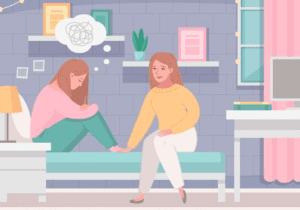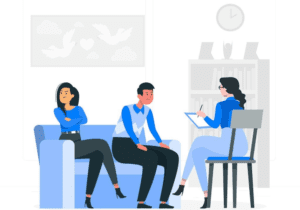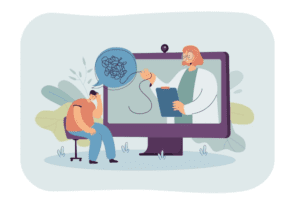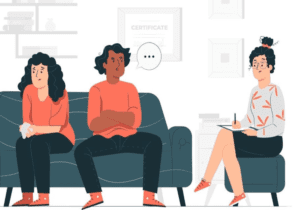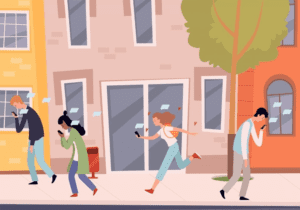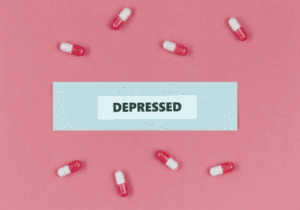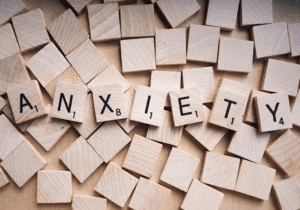Why That Chewing Noise Drives You Crazy
This article has been researched and written by Dalea Alawar. AI has not been used in producing this article.
It’s called misophonia, which literally means “hatred of sound”! It happens when someone experiences a strong emotional reaction like anger, anxiety, or disgust to:
- Mouth sounds (chewing, slurping, lip smacking, heavy breathing)
- Throat sounds (sniffing, coughing)
- Repetitive sounds (clock ticking, foot tapping, pen clicking)
So, why does this happen? Science doesn’t have all the answers yet, but there are two main hypotheses that help explain what’s going on in the brain: Brain scans of people with misophonia show extra-strong connections between the part of the brain that hears sound ( auditory cortex) and the part that feels emotions like disgust and anger (anterior insular cortex).
Translation: When someone with misophonia hears r a trigger sound, their brain fast-tracks it straight to the emotional response center – skipping the logic and reasoning parts altogether. That’s why you might find yourself snapping at your partner for chewing too loudly before you even realize you’re annoyed.
Overall, misophonia is a reaction that truly does feel outside of the control of he person experiencing it. In both theories discussed, what is clear is that the “rational” part of the brain gets bypassed entirely when you hear a triggering sound. Your brain literally does not pause to think about how to react. All of a sudden, you hear yourself snapping at your partner for eating their popcorn too loudly, as if you didn’t choose to snap.
The good news is that you can do something about this. Once you recognize your trigger sounds, you can prepare for them and decide how you want to respond – before your brain hijacks the situation. Another hypothesis is that misophonia is the result of a conditioned response. Just like a song can remind you of a breakup, misophonia may develop when the brain starts to associate certain sounds with past stress, tension, or negative experiences. For example, if you were scolded as a child for tapping your foot, your brain may now associate foot-tapping = bad feeling. So even years later, the sound alone can bring on that same stress – without you even realizing why.
So, instead of yelling at your popcom-munching partner, you might try a little humor: “Hey babe, can we put your snack on mute?” You might still be annoyed – but you’ll be in charge of your response.
Tips for Communicating With Someone Who is Depressed
Knowing what to say to someone who is struggling with depression can be challenging. Perhaps you are afraid you might say the wrong thing. Or maybe you will say something that makes their day even worse? Maybe you fee…
Who Can Benefit From Couple Counseling?
Relationships are far from perfect. Each person brings his or her own ideas, values, opinions, and personal history into a relationship, and they don’t always match their partner’s. Those differences don’t necessaril…
What is EMDR Therapy and How Does it Help People?
Since the days of Freud, we’ve come to expect that managing our trauma is a lifelong journey. However, this is not the case. Eye Movement Desensitization and Reprocessing therapy (EMDR therapy) was developed in 1990 …
Everything You Need to Know About Couples Therapy
It’s perfectly expected for couples in relationships to face challenges from time to time. Every relationship has its unique needs and challenges. Couples see therapy for a number of unique reasons. From miscommunicat…
Does Social Media Cause Depression?
According to recent estimates, roughly 4 billion people worldwide use various social media platforms, including Facebook, Twitter, Instagram, and LinkedIn. It’s not hard to believe. When you take a look around a crowd…
Child Development: Play Therapy in Dubai
Every child deserves to feel safe, empowered, understood, connected, and loved. Play therapy is based on the foundation of providing a safe environment for children to process their emotions and develop the social, em…
The Future of Depression Treatment
According to the World Health Organization (WHO), depression impacts more than 264 million people globally. Once diagnosed, depression treatment can be by medications, psychotherapy, or a combination of the two. While…
How to Talk to Your Therapist When You Have Social Anxiety
Social anxiety disorder (SAD), also called a social phobia, is characterized by intense fear or anxiety of being negatively evaluated, judged, or rejected in a social situation. Individuals with social anxiety often …
Managing Depression During Social Isolation
The outbreak of the global coronavirus pandemic is stressful for many people. Since the World Health Organization (WHO) declared the COVID-19 outbreak a global pandemic, regions across the world have mandated quaran…
What are Cognitive Behavioral Therapists?
Cognitive behavioral therapy (CBT) is a common type of talk therapy (psychotherapy) that has been demonstrated effective for a range of mental health struggles including anxiety disorders, depression, substance abuse …

